Are You an Authentic Leader?
I am your servant. I do not come to you as a leader, as one above others.
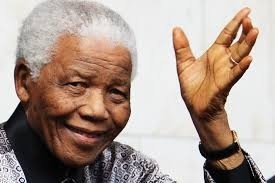
What I want to talk about in this post is leadership and to pose this question, which each of us needs to answer: “Am I an authentic leader?”
We’ve heard statements that leaders are born. But then others argue that leaders can be developed. Well, how about going back in time to hear from Aristotle:
“From the moment of their birth, some are marked for subjugation, and others for command.”
Well, that may not be all that helpful, especially when the general consensus now is that leaders can be developed.
One way to look at the issue is this way: I’ve organized the debate over who possesses leadership into two types of leadership: Big L and Little L. My personal view is that only a few of us will ever have the dynamic leadership behaviours and skills to lead organizations, private, public or non-profit, large or small, or the populace of a country, state or province. Only a few of us have what it takes to be a Big L leader.
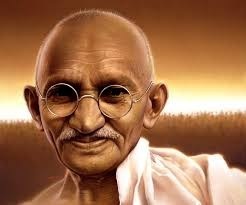
These individuals possess an innate talent and drive that propels them to succeed. Why do some children at a very young age show an incredible skill in a certain discipline, yet other children work hard but only attain a certain level of proficiency?
To lead an organization, especially in today’s turbulent world, requires someone with unique abilities. Some of these can be learned. But there needs to be an inner drive and vision that causes that individual to want to lead others. This raises the issue of power and status, for which many people strive in their efforts to rise to the top.
So what about power?
First off, power can be an important component of effective leadership, provided it is used properly and for the right purposes. When top leaders abuse power by controlling and manipulating their subordinates, then these are not Big L leaders. They may be good managers, but when it comes to inspiring people and leading with integrity, they fall short of achieving this.
Reflect on the following quote by the late Peter Drucker, who called things as he saw them. He believed that leadership must be founded upon a constitution; otherwise, irresponsibility will result:
”I am amazed that today’s prominent writers on leadership do not seem to realize that the three most charismatic leaders in all recorded history were named Hitler, Stalin and Mao. I do not believe that there are three men who did more evil and more harm. Leadership has to be grounded in responsibility. It has to be grounded in a constitution. It has to be grounded in accountability. Otherwise, it will lead to tyranny.”
Drucker was an advocate for shared leadership. He believed in employee responsibility and the need for a “self-governing community,” where individuals and teams share in many managerial activities. And this brings me to the concept of Little L leadership.
What is Little L leadership?

This is a key point to remember when reflecting on our personal leadership styles and potentials.
It comes down to each of us being authentic in how we conduct ourselves. We need to strip off the facades we wear and own up to our weaknesses, limitations, and warts. When we’re honest and open with ourselves and others, we gain greater confidence and self-respect, plus respect from others. Be true to yourself and others will be true to you.
Here’s a personal example.
When I was in my early 30s I was promoted to manager of a team of economists. I had zero management training. Because of my own insecurities and wanting to do a good job, I became a bit of a micro manager. That was until a couple of the young economists straightened me out. It took a while but I learned to eventually let go and share the leadership with my team.
I was still the manager, but my team took a lot of initiative and consistently demonstrated leadership in their own ways. There’s no magic formula or cookie cutter approach to this. Each of us has to find our own way. In my case I had to fall on my nose a number of times.
Here are three questions you may wish to reflect on when it comes to developing your leadership skills:
1. What are my strengths and weaknesses? (Be honest with yourself)
2. What do I need to do to be more adventurous and risk-taking?
3. How can I inspire others to want to work towards a common purpose?
Here’s one piece of advice learned from personal experience: If you want to inspire others (an essential part of leadership), you need to be passionate about your cause.
Here’s a great story.
I recall watching a PBS program a few years ago that looked at the head surgeon of an emergency room in a large US city. As you can imagine, an ER can be an extremely hectic and stressful place in which to work. People have to know their duties and understand the interdependency of their efforts.
What struck me most about watching the surgeon was his calmness in dealing with highly stressful situations in the midst of chaos. Multiple victims of car accidents and victims with gunshot wounds. As he stated to the journalist: “My staff look at me to keep it together. If I lose it, they lose it.” When his shift finished, where did go? Home? No, he went to do volunteer work with inner city Black children. For me, this guy showed exemplary leadership!
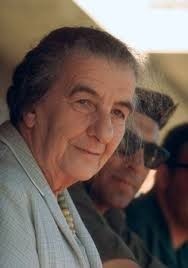
Each of us needs to see our personal quest for leadership as one that first starts with the discovery of who each of us really is. We need: To know ourselves, To hear ourselves, To tell the truth to ourselves, To be honest with ourselves. Once we address these questions and reexamine our values and beliefs, we’ll be ready to move forward in our leadership journey. Sure, leadership skills can be learned. But the first step is a process in which we look inside ourselves.
This journey is a very personal and private one. We may or may not to wish to share with others along the way. However, one thing needs to be clear and that is every leader must go though it.
Authors Kouzes and Posner (The Leadership Challenge) state: “You can’t elevate others to higher purposes until you’ve first elevated yourself….You can’t lead others until you’ve first led yourself through a struggle with opposing values….A leader with integrity has one self, at home and at work, with family and with colleagues. Such a leader has a unifying set of values that guide choices of action regardless of the situation.”
Finally…
Here are four excellent questions they pose to help facilitate the leadership journey:
• What are my values and beliefs on how people should operate in the organization?
• How strongly am I attached to my values and beliefs?
• How strong is my relationship with those I lead and with whom I work?
• Am I the right one to be leading at the moment?
The last question is especially important in my opinion. It gets at the heart of the shared leadership issue. Regardless of one’s “position” in the organization, there are times when one steps forward to lead and times when one steps back. As Kouzes and Posner state:
“To step out into the unknown, begin with the exploration of the inner territory. With that as a base, we can then discover and unleash the leader within us all.”
___________________________________________________________________________________________________
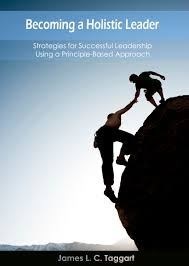
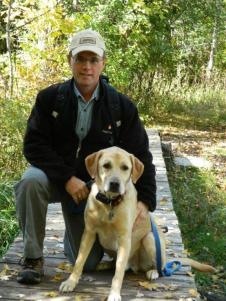
""""""
Articles from Jim Taggart
View blog
The human race is an odd species. Adaptive to immediate threats and catastrophes, we as humans have ...

Accountability has become one of those words used in organizations that make people wince. Many year ...

Your faithful correspondent has been a long-time proponent of self-empowerment, writing extensively ...
Related professionals
You may be interested in these jobs
-
DZ Driver
Found in: Talent CA C2 - 3 weeks ago
The Davey Tree Expert Company Whitchurch-Stouffville, CanadaAdditional Locations: na · Primary Locations: Ontario, Whitchurch-Stouffville, 6282 Bloomington Rd, L4A 2Z5 · Requisition ID: 195012 · Position Overview · At Davey, your office is the outdoors. Every day brings a new adventure, and our national footprint provides you the opportu ...
-
Expert secteur manufacturier
Found in: Talent CA C2 - 1 week ago
CGI Montreal, Canada Full timePosition Description: · Voici une occasion de joindre une équipe dynamique de conseil en management où au cours des quatre dernières décennies, CGI est devenue l'une des plus importantes sociétés de consultation en affaires et en TI stratégiques au monde. · En tant qu'expert du ...
-
Utility Arborist Apprentice
Found in: Talent CA C2 - 1 week ago
The Davey Tree Expert Company Vancouver, CanadaAdditional Locations: na · Primary Locations: British Columbia, Vancouver, 1541 West 75th Avenue, V6P 6Z7 · Requisition ID: 193631 · Position Overview · As a Utility Arborist Apprentice with Davey Tree you will begin to gain exposure on all aspects of the Arborist role. You will ...

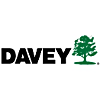

Comments
Jim Taggart
6 years ago #5
Thanks David for your kind words. And thanks to the other folks who have added their insights. Yes, I plan to keep on blogging about leadership issues. I've been at it over eight years and there's always something to write about in an ever-changing world.
Joyce 🐝 Bowen Brand Ambassador @ beBee
6 years ago #4
Liesbeth Leysen, MSc.
6 years ago #3
Debasish Majumder
6 years ago #2
David B. Grinberg
6 years ago #1